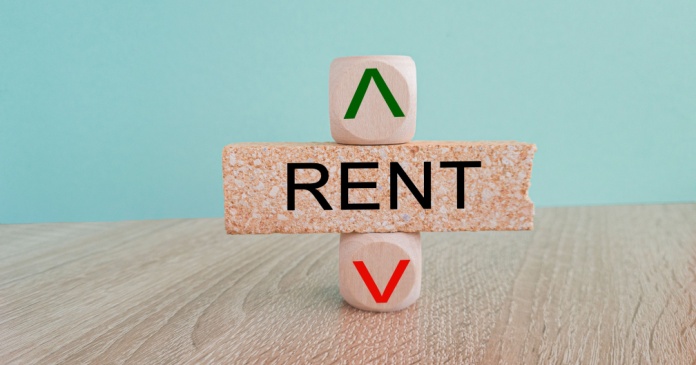You’ll find one of the best illustrations of 21st century business innovation inside not a Silicon Valley corporate campus but rather a Ritz-Carlton hotel, where a guest might return to her room to discover a spread of champagne and cake requisitioned by an employee who discovered it was the guest’s birthday.
If this notion of what I call “human innovation” doesn’t quite compute, it is because our traditional thinking on innovation is ripe for a breakthrough.
The prevailing approach to innovation, which countries and businesses need now more than ever, neglects a rich vein of untapped potential. We are focusing almost exclusively on the innovations themselves—the outcome of the creative process—while neglecting the human element in the equation. What would happen if rather than focusing on only one variable (the outcome) in the innovation equation, we addressed the human variable that we have always kept constant?
The answer is that we would cultivate the conditions necessary for our people to unleash behavioral breakthroughs needed to derive sustainable competitive advantage in the Era of Behavior. I coined the term “Era of Behavior” to describe a period of time in which organizations will thrive because of how they interact with stakeholders—rather than solely on the quality, speed, and volume of their products and services.
A good example
The Ritz-Carlton Hotel Co. exemplifies an organization in which innovations in human behavior deliver sustainable competitive advantage. The company “entrusts” staffers to spend up to $2,000 on guests per incident without approval from their general managers. The incident may involve the resolution of a problem or simply an opportunity to please a customer—such as making a guest feel special on her birthday.
By empowering employees to develop their own customer relationship breakthroughs, the Ritz-Carlton has earned two Malcolm Baldrige National Quality Awards and demonstrated how the killer app of trust fuels the sustainable competitive advantage of behavioral innovation.
Ritz-Carlton’s leadership team foster an organizational culture in which employees are free to invest their time and creativity, and the company’s money, to enhance the customer experience. That, in turn, increases customer loyalty and boosts profits. The employees are not spending the money on more luxurious linen, better equipped hotel gyms, or quicker room service; instead, they are using their creativity and the company’s funds to devise new and better ways to relate to their guests.
This trust helps sustain the Ritz-Carlton’s long-term success. If the company required three approvals and signature whenever a staffer wanted to spend money to please a customer, the best innovative ideas would never see the light of day.
The Ritz-Carlton’s leaders have realized that a traditional approach to innovation, while still absolutely necessary, no longer suffices. Other companies in the hospitality industry can go toe-to-toe with the Ritz-Carlton when it comes to luxuriouslyappointed hotel rooms and lightning-quick room service. No one can match the company’s unique behavior, however.
Need for a new paradigm
The challenges we confront today have made our organizations and institutions hungry for an unusual approach to innovation. We need innovation to address our potentially crippling national debt. We need innovation to help us move beyond the cantankerous political stalemate among federal legislators. We need innovation in healthcare, education, and infrastructure. Our companies need innovation to spur growth in a volatile economy whose expansion remains hindered by lingering fear from the credit crisis. Our companies also need innovation to unearth new forms of competitive differentiation in the face of intensifying global competition.
In this environment, we can no longer afford to treat innovation as we did in the 20th century. We need a new paradigm for business innovation, an approach similar to the new one emerging in scientific discovery. Microsoft (MSFT) Vice President Tony Hey recently described how the field of scientific exploration is entering a new paradigm: mining and manipulating massive amounts of data from multiple disciplines in a highly collaborative way, with key contributions from “citizen-scientists.”
Thanks to the world’s growing reliance on digital technology and our newfound global connectivity, everyone armed with an Internet connection or a cell phone can contribute to research efforts in astronomy, biology, immunology, and many other scientific fields. Backyard astronomers contribute data that help renowned astronomers chart new planets and other discoveries. Citizens with Internet connections lend their desktops each night to grid-computing projects that churn through billions of computations in the search for new drugs that can treat cancer or Alzheimer’s.
The natural resource within
In the business realm, our companies need to embrace a similar paradigm by fostering the conditions necessary to “innovate in humanity,” unleashing employees to come up with new ways to interact, collaborate, network, and behave.
The Ritz-Carlton’s approach shows that innovating in humanity builds brands and delivers competitive advantage. That’s good news for companies and countries, because behavior represents a unique and unlimited natural resource within our organizations; no competitor can reverse-engineer the game-changing behavioral innovations that its people produce.
In an Era of Behavior, the organizations and institutions whose leaders extend the trust necessary for their people to innovate within will achieve the most sustainable success and significance.
Author: Dov Seidman, Bloomberg Business Week














